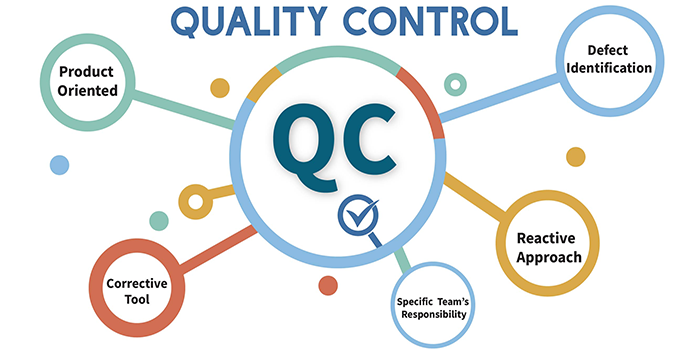
Quality Control (QC) is a process used to ensure a certain level of quality in a product or service. It involves testing for defects, monitoring production processes, and ensuring that all necessary standards are met. Quality Control is essential in any industry in order to maintain consistent quality of products or services.
Quality Control Training Course
Quality control training courses are designed to teach employees how to measure, inspect, and test the quality of products and services. Quality control courses may cover topics such as quality assurance, quality management, process control, testing, and statistical methods. Participants learn how to use tools and techniques to maintain high levels of quality, reduce costs, and improve customer satisfaction. The course may also cover topics such as root cause analysis, continuous improvement, and auditing. Quality control training courses are available in–person, online, and in a variety of formats.
Which Course is Best for Quality Control?
The best course for quality control is ASQ’s Certified Quality Inspector (CQI) course. This certification is designed to give students a comprehensive understanding of quality control principles and practices, and teaches them how to effectively implement quality assurance plans. The CQI course also provides a detailed overview of inspection methods, sampling plans, and quality control processes.
What is Quality Control in Training?
Quality control in training is a process that helps to ensure that training programs are effective and meeting the goals of the organization. It involves assessing the quality of the training program, analyzing feedback from participants and trainers, and making necessary changes to the program to ensure that it is meeting the desired objectives. Quality control helps to ensure that the training is effective and improving the performance of the organization.
What are Types of Quality Control?
1. Statistical Process Control (SPC): This is a method used to monitor and control processes by using statistical analysis.
2. Design of Experiments (DOE): This is an organized approach to testing the relationship between factors that affect a process to determine which factors have the greatest impact on the output.
3. Process Capability Analysis: This is a comparison of a process‘s performance to its requirements.
4. Measurement Systems Analysis (MSA): This is a method used to evaluate the accuracy and precision of measurement systems.
5. Failure Mode and Effects Analysis (FMEA): This is a proactive approach to identify potential problems and their causes before they occur.
6. Total Quality Management (TQM): This is an approach to managing the entire organization that focuses on customer satisfaction and continuous improvement. 7. Six Sigma: This is a data–driven approach to identify and eliminate defects in any process.
Best University for Quality Control Training Course in India
1. Indian Institute of Quality Management (IIQM), Jaipur
2. Indian Institute of Technology (IIT), Delhi
3. Quality Council of India (QCI), New Delhi
4. National Institute of Quality Management (NIQM), Bangalore
5. National Institute of Industrial Engineering (NITIE), Mumbai
6. National Institute of Technology (NIT), Warangal
7. National Institute of Quality Management (NIQM), Chennai
8. Indian Institute of Technology (IIT), Kharagpur
9. International Institute of Quality Management (IIQM), Pune
10. Symbiosis Institute of Quality Management (SIQM), Pune






